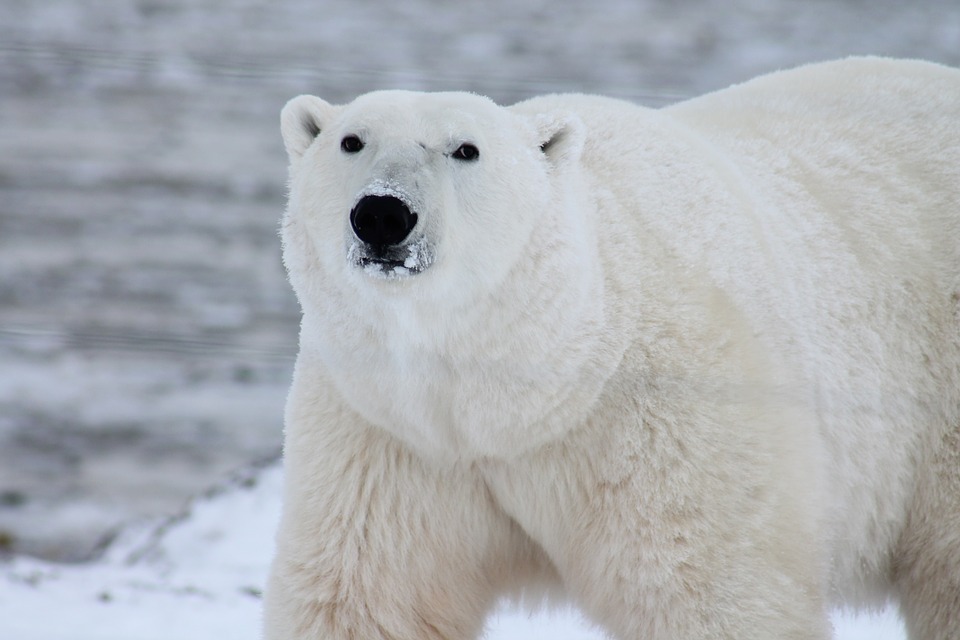All species deserve celebration, but Endangered Species Day is reserved specifically for those most precious and facing the greatest threat of extinction. This year’s Endangered Species Day, May 18th, comes just months after the harrowing loss of Sudan, the last remaining male Northern White Rhino. Unfortunately, the plight of this species is not unique amid the current “Sixth Extinction” our world is experiencing. If we do not act now, many of these species will disappear from the planet.
Why celebrate and protect endangered species?
Could you imagine life without the magnificent flight of bald eagles, the howl of wolves, or the striking white silhouette of polar bears against the ice? When a species is gone, it is gone forever. And history is filled with such examples, like the Carolina Parakeet and the Great Auk. To prevent more devastating losses, both known and unknown, current endangered species must be brought to the forefront of our attention.Amazingly, many endangered species, especially those in biodiversity hotspots such as the Amazon in South America or the Congo Basin in Africa, have only recently been discovered. But scientists are worried some of these species will become extinct before we have time to learn about them. Our closest living great ape relatives, Chimpanzees, Bonobos, Gorillas, and Orangutans are all endangered, and are also at risk of going extinct. As Dr. Goodall has said, “I’m always pushing for human responsibility. Given that chimpanzees and many other animals are sentient and sapient, then we should treat them with respect.” Thus, this Endangered Species Day should come with a promise to protect them and other species from extinction.

endangered Borneo pygmy elephant (E. m. borneensis)
Protecting an endangered species doesn’t just benefit one species. The reintroduction of gray wolves to Yellowstone National Park proved that everything is truly connected. When this species was reintroduced to Yellowstone, the entire ecosystem transformed and recovered. Chimpanzees and other primates, for example, are important seed dispersers and help to maintain the biodiversity of plants and the wildlife that rely on those species for food and habitation. Protecting one species helps protect an entire ecosystem’s complex web of interacting organisms.
What does the Endangered Species Act have to do with anything?
The Endangered Species Act was created in 1973 to offer legal protection for endangered and threatened species. Today, 1,600 native animals and plants, and an additional 700 foreign species (including chimps), are protected under this legislation. The Blue Whale, California Condor, and over 2,300 other endangered species exist today with the aid of this crucial piece of legislation. As more and more threats in the current political climate loom over the Endangered Species Act, we must join together to participate in making sure these protections remain.

vulnerable polar bear (Ursus maritimus)
What is the Jane Goodall Institute doing to help endangered species?
Dr. Jane Goodall preaches on the same note that the wolves of Yellowstone have been singing. She has long known that, “when you live in the forest, it’s easy to see that everything’s connected.” It is this connectedness that inspired the Jane Goodall Institute to continue ongoing research in Gombe, and to develop a variety of community-centered conservation efforts.These include providing environmental education, sustainable livelihoods, healthcare, and clean water to communities in and near chimpanzee habitat. When communities are provided with the tools they need for improved well-being and sustainable life, the result is a better future for people, wildlife and the environment. It is also why she and JGI created Roots & Shoots, JGI’s youth empowerment program which helps young people in nearly 100 countries to recognize their place in the larger web of life, and supports youth action to create positive impacts for people, animals and the environment.

endangered chimpanzee (Pan troglodytes)
What can you do to make a difference on Endangered Species Day?
- The Endangered Species Act has come under fire in the current administration. Read more about the threats to the ESA and contact your elected officials to voice your support for this issue. https://www.usa.gov/elected-officials Go to http://www.oneactfo rall.com to take action.
- Endangered Species Day is about spreading awareness for the world’s endangered species and why they matter. Share this article or create your own post, highlighting your favorite endangered animal and what people can do to help. Familiarize yourself and others with those species currently listed as endangered by exploring the IUCN Red List.
- You can also donate to JGIto help continue community-centered conservation to save great apes and their habitats from extinction. Bonus: Use your talents to fundraise and raise awareness in your community through Team Jane!

The Jane Goodall Institute is a global community conservation organization that advances the vision and work of Dr. Jane Goodall. By protecting chimpanzees and inspiring people to conserve the natural world we all share, we improve the lives of people, animals and the environment. Everything is connected—everyone can make a difference.







